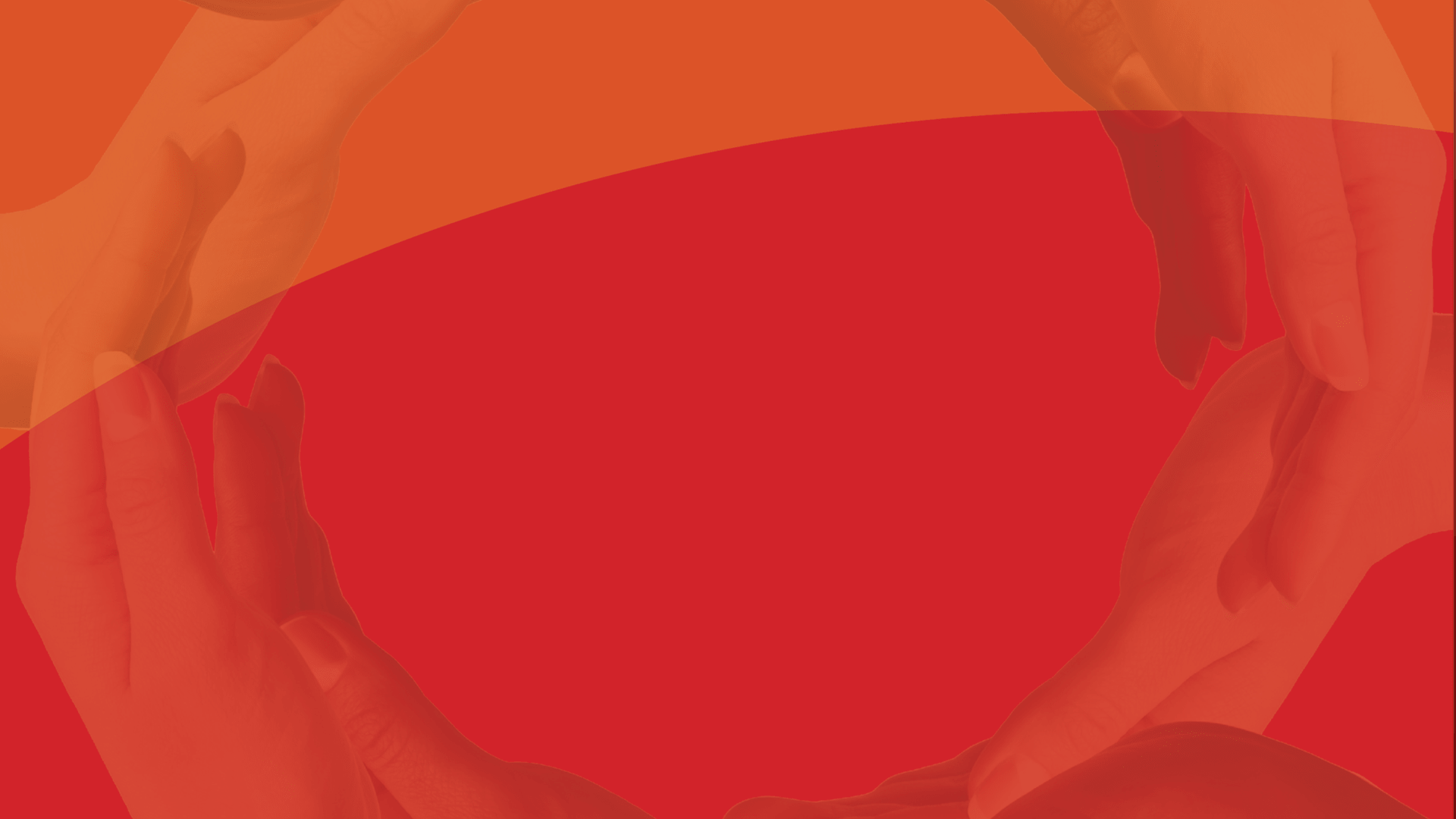17 Sep How We Practice with Sherika Tenaya
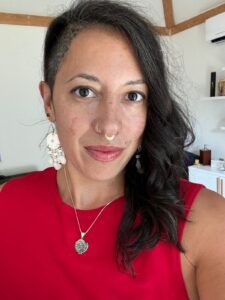 Recently I had the opportunity to have a conversation with adjunct faculty Sherika Tenaya. Sherika brings a wide range of life experience and education to her role as adjunct faculty here at the Institute and it was such a pleasure to learn more about her approach to the profession.
Recently I had the opportunity to have a conversation with adjunct faculty Sherika Tenaya. Sherika brings a wide range of life experience and education to her role as adjunct faculty here at the Institute and it was such a pleasure to learn more about her approach to the profession.
Tracy: Sherika, what do you want us to know about you and your journey to somatic sex education?
Sherika: It began with oppression. I was raised in a strict fundamental Christian household and there was a lot of strong rules about proper behaviour. When I was young, I wanted to please my parents, so I fit into the mold that they set for me, but when I hit puberty and my sexuality kicked in, I began to question my parents and the church.
I’ve always been a voracious reader, and reading opened my mind to a lot of different ideas and philosophies. I would read my mom’s historically accurate romance novels with graphic sex scenes, and the way the women were treated as property made me angry even as they made me horny. I started to recognize how the strict teaching of the church played this role in the ways women are treated.
Being a person of colour, my dad had a lot of that Latino machismo vibe and he would make comments about women and their role and I would resist it. When I started having sex with boys, my parents were very upset as I was not following the ‘rules’, but for me, choosing to share my virginity was about curiosity and exploration, and having the experience, not about love and romance.
As my sexuality developed and I deconstructed my faith, my queerness came through and the first time I had sex with a woman, it reframed sex for me. It changed what I thought sex was. For the first time, I experienced what I might call sex magic- a deeper experience of sexuality that was about exploring my own body, energy and new kinds of orgasms. This was a time of learning to be who I am no matter what others said.
I grew comfortable talking about sexuality. In college I wrote a sex column for the college newspaper that was well received. I wanted to learn more, and I wanted to find a way that I could work with people around their sexuality. Then I found Caffyn Jesse’s work, and I loved everything that they wrote. They have an amazing capacity to take big concepts and distill them into simple, clear, poetic wisdom. I found this school and with the BIPOC scholarship I was able to enroll.
There is a lot of addiction in my family and some things happened that made me realize that I didn’t know very much about trauma. This program had the most robust trauma program as well as the social justice pieces that were important to me.
Tracy: Thank you for sharing your story with us, I appreciate your courage. While we all come to this work so many different ways, most often it includes the power of eros and our own journey of sexual healing. Would you tell us what excites you about practicing somatic sex education and what challenges you?
As a gay person of colour growing up in an environment of religious oppression, I would look at all these power systems that keep us down and wonder how I could make a difference? In my younger 20’s I was very politically active, attending campaigns and protests, and while it felt like a good channel for my passions, it didn’t feel like enough. And when I found the practice of Yoga, this was instrumental in getting me into my body and helping me to recognize what can happen from within.
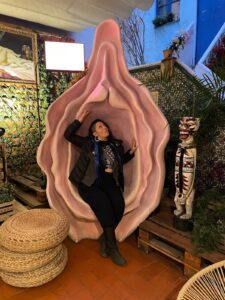
SSE excites me because it can be a clear and direct way of toppling these systems from the ground level. I teach people to find their own inner power and authority. Exploring my sexuality did this for me, it was the guiding light for me and led me to my truth. I learned to identify and follow my inner guidance even though it went against what everyone who loved me said was right. All these systems that exist, capitalism, patriarchy, organized religion…. They all tend to supplant a person’s inner knowing and teaches them to put their authority in some external power. Somatic sex education brings people back to themselves as their own inner authority and teaches them that they can and are healing themselves. It brings people back to their truth.
After deconstructing my own faith, I was very skeptical of anything or anyone who would tell me what spirituality was. When I first studied yoga people talked about chakras and I was like, what is this? If I didn’t experience it directly, I wasn’t jumping on the woo woo train. In college I studied to be a nurse, so science is important to me. Somatic sex education brings in the science, it’s a beautiful bridge between the academic piece and the bodily experience.
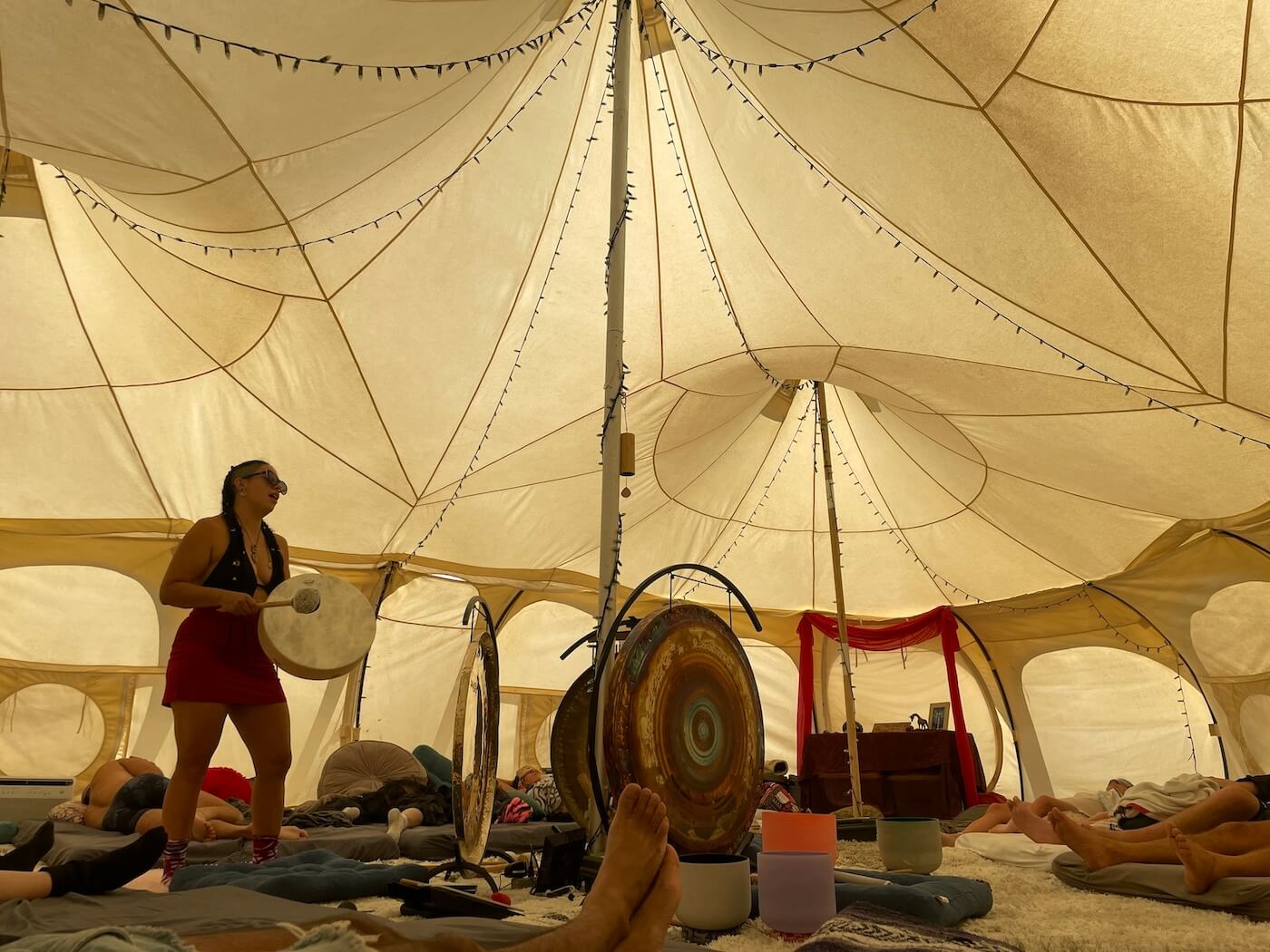
Somatic sex education has the capacity to save the world. As a tribal person, it’s not lost on me how much colonization works to destroy tribal bonds and that has bled out into this culture we have inherited where people are isolated and alone. Connection is the only thing that can stand against it. SSE has practical, actionable ways for people to first connect with themselves and their truth, and then to other people. That is the power that can stand against the forces that seem to run the world. This work feels like a practical way of toppling oppressive power systems, and that is so exciting to me!
Tracy: I have shivers down my spine as you speak about the power and potential of this work! And what about the challenges of somatic sex education?
Sherika: The biggest challenge is to invite people into their bodies when it can feel hard and scary. It’s the difficulty of teaching people who have no background in mindfulness to come back into their bodies. For good reason, people have developed a wonderous capacity to disconnect from our bodies- this world is not suited for our animal bodies and disconnection is one of ways we have to survive. It was challenging for me; it took years for me to build the capacity to actually live in my body. It is like learning a new language.
Tracy: Yes, for many people the concept and language of sensation is new, and yet here you are, having done the work and learned the language and ready to share it with others. What does your practice look like now and where do you want it to go in the future?
Sherika: Right now I work in private practice with individuals and couples in one-on-one sessions. I also teach group workshops and classes which I really love and want to do more of. Something I’ve noticed is that we teach people all these wonderful skills and then they go home to their friends and family who don’t know this new language. They often don’t have a place to practice these new skills and this can interrupt their ability to integrate what they are learning. I’m imagining creating a community, a place where people can come together to practice and connect with each other in a real-life setting.
Tracy: I love that. Connecting first with self and then with the wider community. I love to imagine inhabiting a world where everyone feels safe-enough in their bodies and what that could be like. Would you be willing to talk a little more about yourself? I wonder if you would share a bit about the specific gifts and abilities that you bring to the work?
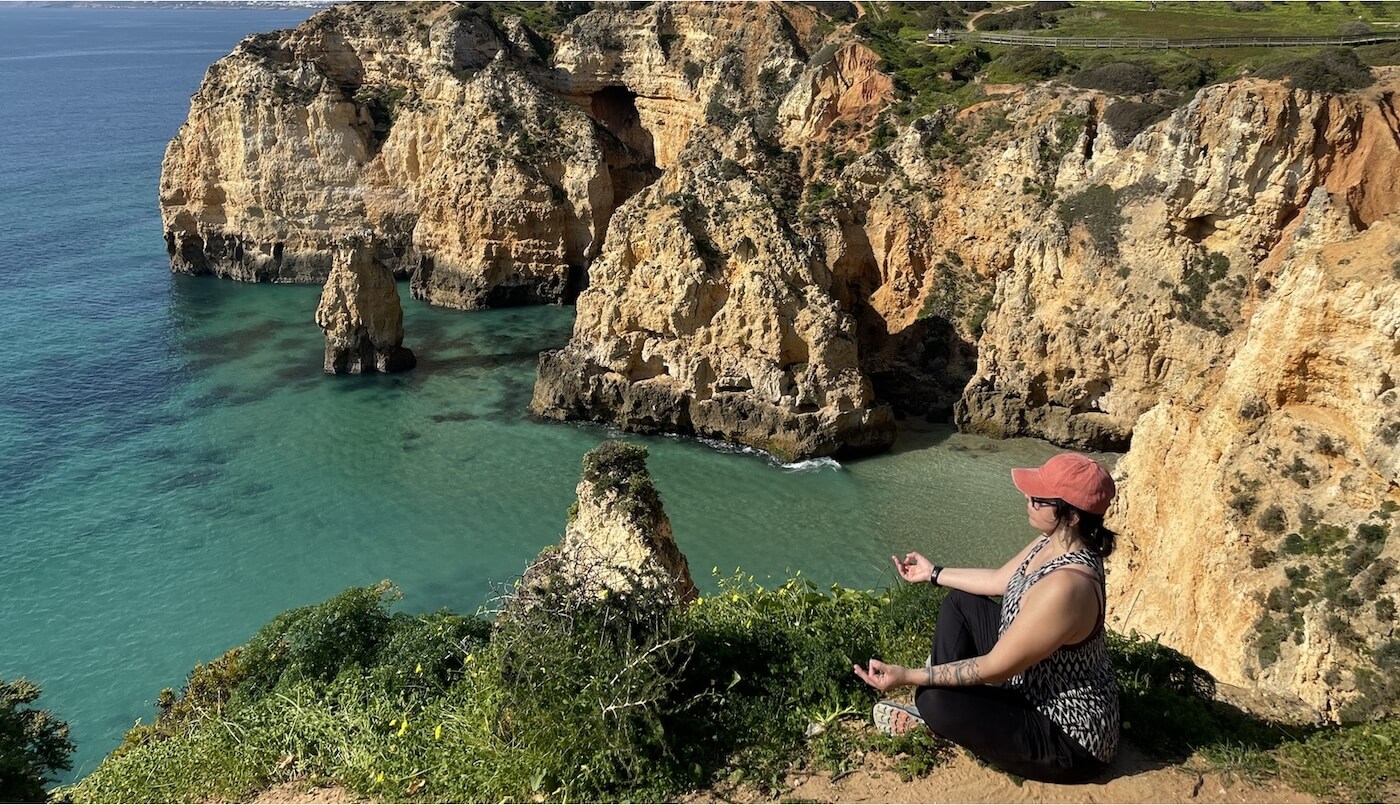
Sherika: I have a capacity to take complicated medical or scientific concepts and distill them into a relatable way that a lay person could understand. I also have a certain no-bullshit kind of demeanor that I think serves my clients well. I’ve been told by people that I have a no-nonsense manner, and I am a fan of clear communication and authentic reflection. I want to know if people are upset with me or if I’m doing something wrong. We don’t know what we don’t know. A lot of people can be doing some shitty things, and they don’t even know it, until someone gently and clearly says “Hey, you’re doing this thing and it has this impact.” I think there is a way to have conflict and reflection in a good way that creates growth and authenticity within communities. My capacity to be real and direct is in service to the people I work with.
Tracy: I think that realness, that willingness to look at the shadows and to take responsibility for our actions and impacts might be more scary for people than the sex part…
Sherika: I think that is what makes sex so powerful and so connecting. When sex is consciously done, it is so vulnerable. Not only are you physically naked before someone, but all of you is naked- your insecurities can come up, you body secretions, smells, and sounds. To be seen in a sexual way is to be seen in so many other ways, and that vulnerability is very brave work. To be present with my lover, I have to be present with me. I have to accept the parts of me that feel ‘ugly’. Similarly in the spiritual battle, there is a lot of people who hide from their shadow, that disown parts of their being that are considered ugly by their family or community of origin . So calling in that ugliness and those shadow pieces and befriending them is such an important way of finding the wholeness that the healing grows from.
I have done that for myself, and while I’m not at the end of that journey, I had to learn to accept and welcome and love all the parts of me, in order to come out in my family of origin and withstand their negative comments. I think that is the root of how this healing works. A lot of people tend to mimic what they see in the media at the expense of their own desire. So the truth telling is such a huge piece of this work and it goes through the layers of our soma. What does my physical body actually want, how does my emotional body respond and how does this fit or not with what I’m socially told is okay?
Tracy: This work is powerful stuff! What do you think is important for folks just beginning their journey to becoming somatic sex educators to know?
Sherika: I would say that if there is anything inside of you that whispers and calls you to this work, even though it’s scary, and edgy, I invite you to follow that. The world needs this work. Bring your capacity to try new things. See if it’s right for you and discard it if it’s not. We all have different paths to doing this work and we need all forms of embodiment and sexual empowerment.
The thing about this school and curriculum is, even if you choose not to practice professionally, the inner alchemy that can happen as you explore and sit with the curriculum is a powerful path of self-knowing. It’s truly a gift to know oneself.
When I was deconstructing my faith at 15, I started to ask myself, why do all these organized religions demonize sexuality, especially that of femme-bodied people, and I realized that there must be great power here. And I believe with every fibre of my being, that with all the things we are taught to fear, there is something there that is powerful and important and worth finding out about. It’s important for humans to trouble the norms and assumptions that the dominant culture has around sexuality and why I chose the path of somatic sex education.
Yes, this work can be scary and edgy and disapproved of, but that doesn’t mean it’s wrong. It’s up to brave, courageous and wise people like us to step into it, to embody it, and to continue to offer this knowledge to people. This thing that we are taught is “an animal base act’ is actually for me, a fundamental spiritual and devotional practice. It is the core of human connection and therefore human healing. It is so much more than just procreative or stress relief. It is the Oneness, the way that we embody the divine within ourselves.
Tracy: This feels like the perfect place to end. Thank you for speaking with me today.
Sherika: Thank you for asking.
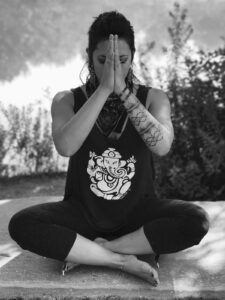 Sherika Tenaya is a Certified Somatic Sex Educator & Sexological Bodyworker, a 500 hour Experienced Registered Yoga Teacher (E-RYT 500), an Ordained Minister with the Universal Life Church, and Somatic Breathwork Facilitator. She is also a proud member of the Southern Sierra Miwuk Nation, Ahwahneechee Grizzly Clan. savorsoma.com
Sherika Tenaya is a Certified Somatic Sex Educator & Sexological Bodyworker, a 500 hour Experienced Registered Yoga Teacher (E-RYT 500), an Ordained Minister with the Universal Life Church, and Somatic Breathwork Facilitator. She is also a proud member of the Southern Sierra Miwuk Nation, Ahwahneechee Grizzly Clan. savorsoma.com
Tracy Montgomery is a lover, dreamer, student, teacher, Somatic Sex Educator, Somatic Experiencing® Practitioner and adjunct faculty at the ISSSE. She lives and plays along the Ottawa River on the traditional lands of the Algonquin, Anishinabek and Huron-Wendat peoples. tracymontgomery.ca



